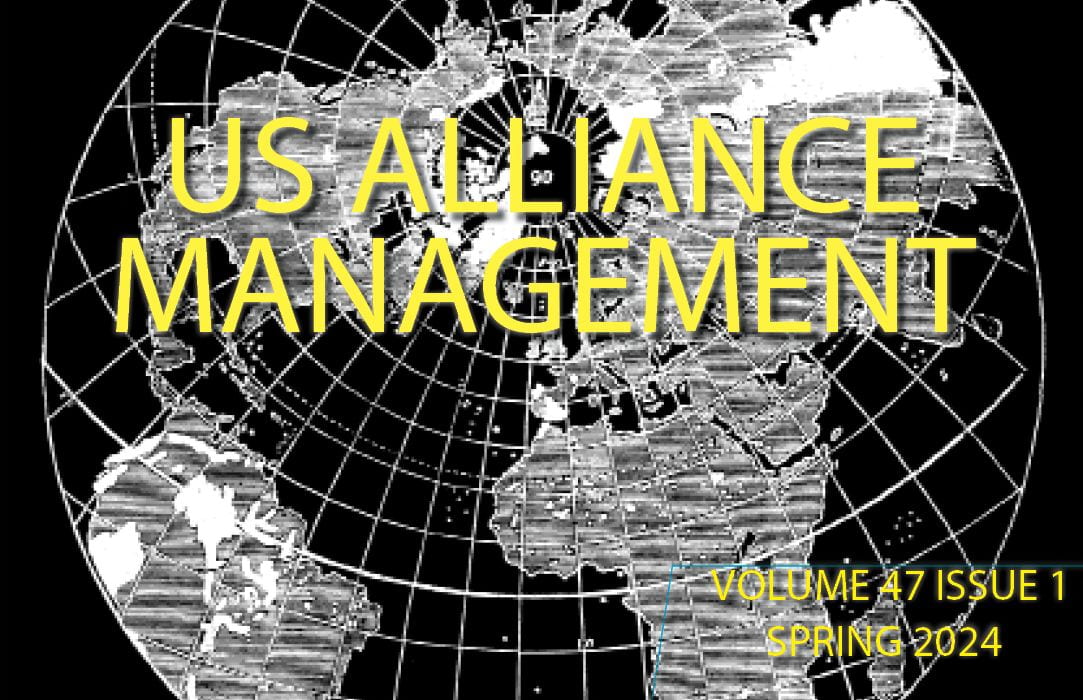
Managing the Dilemmas of Alliance Burden Sharing
by Brian Blankenship
Burden sharing is a double-edged sword; allies that become more self-reliant also become more capable of spurning Washington. Although US allies in Western Europe might be better positioned to fend for themselves than those in the Indo-Pacific, successfully encouraging burden sharing in Europe also poses a greater risk of alliance decoupling. To manage these dilemmas, the US has three policy options.
in Europe...
European Strategic Autonomy: The Path to a Geopolitical Europe
by Tara Varma
As the very foundations of the EU, such as interdependence, have come under question, four key factors are inevitably driving greater European strategic autonomy—a loaded expression, but one that should be less controversial. For a strategically autonomous Europe to be a better ally to the US, it is more essential than ever to develop Europe’s capacity to act—particularly in terms of how to make the solidarity clause actionable and determining what a European nuclear deterrent might look like.
Anticipating Europe’s Nuclear Futures
by Wannes Verstraete
What do shifts in the global balance of power and questions about future US commitments to European security mean for Europe’s potential nuclear future? This European perspective lays out six potential security scenarios and their implications for nuclear deterrence in Europe, concluding that Europe and its allies must start debating these issues more openly.
in the Indo-Pacific...
The Elusive Indo-Pacific Coalition: Why Geography Matters
by Kelly A. Grieco and Jennifer Kavanagh
Although not for lack of effort, the Biden administration has only made marginal gains with its investments in regional alliances and partnerships. The reason? The realities of Asia’s punishing geography, whose maritime environment and vast distances reduce both perceptions of China as an existential threat and the credibility of US commitments. But there is a better way to leverage the region’s unique geography to the US’ strategic advantage.
Bidenomics in the Indo-Pacific: Strategic Implications
by Jeffrey Reeves
The perception that the Biden administration is not using economic means to advance US interests in the Indo-Pacific is simply incorrect. Across Northeast and Southeast Asia, the regional commentators reviewed here increasingly identify a sophisticated and effective five-pronged US economic strategy that has bolstered the US strategic presence in the Indo-Pacific while reshaping aspects of the region’s political-economic order.
Limited Leverage: Nuclear Latency in South Korea’s Alliance Bargaining
by Ankit Panda and Tristan A. Volpe
After President Yoon’s January 2023 public, not-so-veiled proliferation threat, the April 2023 Washington Declaration was a two-way exchange of assurances: South Korea reaffirmed its commitment to abstain from developing nuclear weapons, while the US agreed to augment its security reassurances in return. But how much bargaining leverage does Seoul actually have over Washington?
When Actions Match Words: Japan’s National Security Strategy at One Year
by Christopher B. Johnstone
Tokyo is off to a strong start in implementing its historic December 2022 national security strategy’s promises, which saw a far more capable US ally finally promising to develop military capabilities to match its longstanding diplomatic and economic strength. The next phase of implementation will require significant legal and policy changes that budget increases alone cannot achieve.
Provocations
Six Options for Israel in Gaza
by Daniel Byman, Riley McCabe and Alexander Palmer
What options does Israel have to ensure its security amidst the humanitarian and political realities of the Gaza Strip? The authors outline six non-mutually exclusive options here—noting the costs, risks and limits of each. None are necessarily good, but some are less bad, and the repercussions will have implications for regional stability and international relations writ large.
Nuclear Risks Rise as Great-Power Conflict Goes On
by Adam T. Biggs
A research psychologist with the US Navy argues that psychological concepts like deterrence and the nuclear taboo work optimally during the opening stages of war. However, protracted great-power conflict can produce declining ethical standards due to a combination of moral injury and cognitive dissonance. This means that nuclear weapons use is more likely at the end of a war—as it was in Hiroshima and Nagasaki—than at its outset, which is ironically not how we have been trained to think.
Behind the Headlines
Insights from previous issues
America's Role in a Post-American Middle East
by Dalia Dassa Kaye
Perceptions of whether the United States is “staying or going” in the Middle East are
increasingly divorced from realities on the ground. The US is both engaged in the region and seeking to reduce its direct commitments, but American regional predominance, if it ever really existed, is certainly now over. So, what is the American role in a post-American Middle East? From our Spring 2022 issue.
How Putin's Regime Survivalism Drives Russian Aggression
by Aleksandar Matovski
Geopolitical and ideological motivations cannot explain the timing, among other factors, of Russia’s invasion of Ukraine. Instead, regime preservation is both often overlooked in Western debates and has implications for the Kremlin’s future behavior, escalation risks, negotiation strategies, and war objectives. Ignoring this self-preservation motive could have catastrophic consequences. From our Summer 2023 issue.
Russia’s Failed Nuclear Coercion Against Ukraine
by Anna Clara Arndt, Liviu Horovitz and Michal Onderco
Kyiv itself was not the main target of Moscow’s nuclear rhetoric…until September 2022. Just a few weeks later, Russia suddenly stepped it back. Why? The authors argue that these short-lived attempts failed because of Moscow’s decision-making pathologies which led to three errors. But what do they teach us about nuclear deterrence more broadly?From our Fall 2023 issue.
China’s Potential Lessons from Ukraine for Conflict over Taiwan
by M. Taylor Fravel
What political, military and economic lessons might China be learning from Russia’s invasion of Ukraine and the global responses to the war? How might these assessments influence China’s decision to use force against Taiwan? And given these lessons, what other actions might lead Beijing to rely on the use of force against the island?
China's Economic Statecraft: Lessons Learned from Ukraine
by Audrye Wong
Relative to Moscow, Beijing is arguably both more sensitive to and more resilient against US economic pressure. While China is vulnerable to US financial power, and is likely to remain so for the near to medium term, Beijing is likely to take three steps, based on its lessons drawn from the war in Ukraine, to attempt to weaken US and allied leverage in any potential future crisis. From our Spring 2023 issue.
Still Getting Asia Wrong: No “Contain China” Coalition Exists
by David C. Kang
For decades, scholars have been claiming that Chinese power is, will, or should cause East Asian countries to balance it. Yet, these countries have steadily reduced their proportional defense spending, are increasing their economic relations with China, and are building regional multilateral institutions with Beijing. US strategy needs to be rethought: there is little evidence any East Asian country would join even an incipient containment coalition against China. From our Winter 2023 issue.


